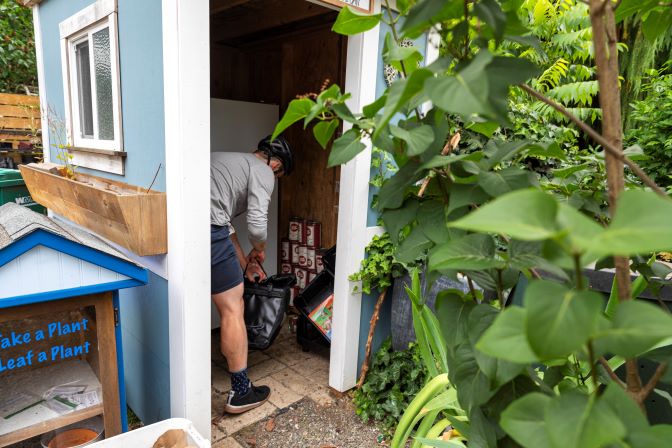
The Urban Freight Lab (UFL) has launched an innovative research project aimed at addressing food insecurity in Seattle by building a connected network of community-operated micro-pantries. Funded by the National Science Foundation’s (NSF) Civic Innovation Challenge and supported by the U.S. Department of Homeland Security (DHS) and the U.S. Department of Energy (DOE), this effort brings together researchers, local nonprofits, and neighborhood leaders to create a smarter, more equitable food distribution system.
The project, Leveraging a Connected Network of Unattended Micro-Pantries to Reduce Food Waste and Improve Food Security, aims to deploy a decentralized network of small, unattended food pantries that operate on a “take what you need, leave what you can” model. Stocked by local residents, businesses, and organizations, they provide free, low-barrier access to food and essentials. The system is designed to reach vulnerable populations who may face obstacles to accessing traditional food assistance programs.
To ensure reliability and efficiency, UFL researchers will equip pantries with wireless sensors that monitor inventory levels, track expiration dates, and collect data on usage patterns. This real-time information will be used to optimize restocking and distribution, helping ensure each pantry meets local demand with fresh, safe goods.
By integrating community action with smart logistics and real-time data, this first-of-its-kind study will provide new insights into how technology-enabled mutual aid systems can reduce waste and improve food access at the neighborhood level. This work aims to serve as a model for other cities looking to build resilient, community-driven food systems.